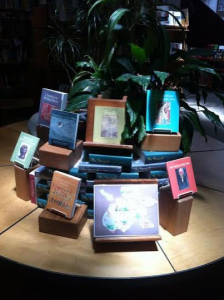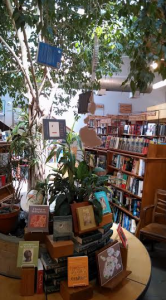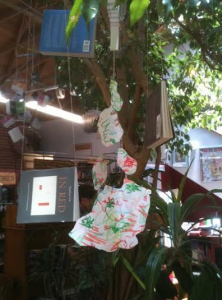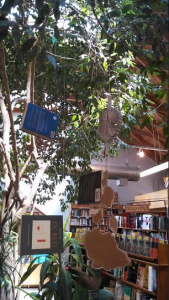
I would like to say something about Dominique Fabre’s terrific and ingenious novel The Waitress Was New, but it’s difficult to do so without resorting to the sort of clichés that the book so nimbly avoids. “A minor classic,” for instance, or “a charming little book,” although the novel is both these all-too-often-inaccurately-described things. Nor is it much good to simply sum up the book as a short account of ordinary goings-on in a French café, narrated by a quiet waiter, as it either sounds crashingly dull or cloyingly sweet when it is determinedly neither. Nor is a highfalutin approach – “a deceptively detached exploration of the quotidian” – likely to be of service.
These are the novels that are the most difficult to describe, at least to people you don’t know. They have an odd, vague grasp on the brain. You usually stumble across them – in a rental cabin, maybe, or when you 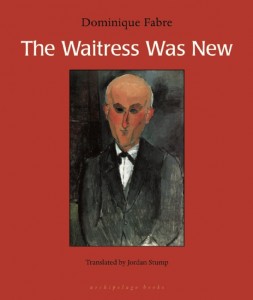
are crashing at a friend’s place and can’t sleep and ransack their shelves in the middle of the night. They’re short, the novels I’m talking about, because you’re picking them up casually and so have grabbed a quick read, and while they move quickly they leave a slow, lasting effect. They’re immersive reads. Before you know it you’re finished with the novel and it’s very late, or even morning. You spend the whole next day teetering between your actual circumstances and the setting of the novel, your brain dreamy and off-kilter. And then, usually, they disappear for awhile, these books. Maybe you can’t remember their titles. Maybe you remember only a few wisps of plot, some scene someplace, and every so often, with a friend or a bookseller, you try to describe the book but just trail off. You forget this unforgettable novel until, occasionally, it arrives in your life again, a tiny miracle like a perfect cup of coffee or just the right wine.
The Waitress Was New arrived in my subscription package from Archipelago, nestled between the thicker, more ambitious works. I wasn’t drawn to it immediately, but I put the novel on my shelf and then impulsively grabbed it one afternoon on my way out the door to meet a friend who’s always late. By the time she showed up I was annoyed at her for interrupting. I was no good at talking with her, suddenly, my eyes glazing over and slipping back to the little café and the complaints of the bartender and the slow march of the business troubles threatening to upset the quiet stasis of his life and the life of the whole novel. My friend left and I finished the novel over our cold empty cups and it haunted me, this plain and simple thing, this sad bit of loneliness and this very human voice.
And then, in the months that followed, I lost track of it in my head even as the book continued to lurk in my imagination. On more than one night I caught myself thinking, as I drifted off to sleep, that I needed to call up my friend, the old bartender at a café, only to remind myself, foggily, that he was the narrator in some novel I couldn’t quite place, until I was stacking books, a near-constant activity in my room, and The Waitress Was New fell out and I sat on my floor and remembered it, this book I had never forgotten, and read it again right here. It’s that sort of novel. It’s a minor classic, a charming little book, a short account of ordinary goings-on in a French café that some highfalutin reader might call a deceptively detached exploration of the quotidian. It’s the sort of book you can’t wait to find again, and for others to find it for the first time.
—
BUY The Waitress Was New by Dominique Fabre
—
More READERS WRITE BACK:
Rick Moody on Lenz by Georg Büchner
Edmund White on My Kind of Girl by Buddhadeva Bose
Dr. Craig E. Stephenson on The Salt Smugglers by Gérard de Nerval

